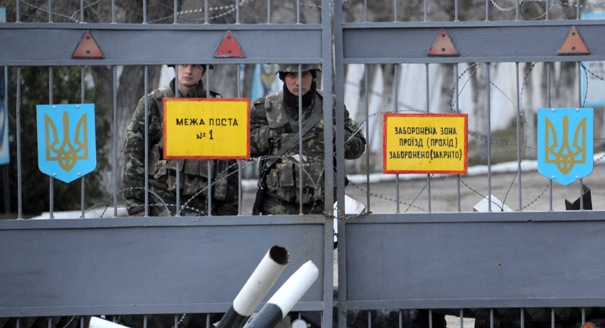On March 5, Carnegie Europe, the Polish Institute of International Affairs, and the Atlantic Council hosted a think tank summit in Warsaw on the ongoing turmoil in Ukraine. The event revealed important differences but also common objectives, both among the European participants and between the European and American experts, on how to deal with Ukraine and Russia’s invasion of Crimea.
James Sherr, associate fellow in Chatham House’s Russia and Eurasia Program, offered the following insights on the reasons for Russia’s intervention, what Moscow hopes to achieve, and what the consequences might be.
Why has Russia intervened in Crimea?
- The Kremlin believes there is a direct connection between the fate of the post-Soviet order in Ukraine and that of Russia itself.
- Russia is in shock. Having stated as recently as December 2013 that “Ukraine is now ours,” Moscow suddenly finds itself with no influence in Kiev at all.
- To defend its vital interests, the Kremlin is prepared to accept high risks and temporary losses—both financial and political. It believes that is a major advantage in any contest with the West. Moscow fears EU integration, has little respect for EU leaders, and believes that European business interests will trump geopolitical ones.
What are Moscow’s objectives?
- Russia’s objective is Ukraine as a whole, not just Crimea, whose importance is only instrumental.
- Moscow’s political goals are threefold. First, to make Ukraine ungovernable by undermining the executive and by depriving outside stakeholders such as the EU and IMF of predictability and confidence. Second, to impose on Ukraine a Western-sanctioned constitutional “solution” based on federalization (which, under current conditions, means disintegration) and a special status for Crimea. Third, to show Kiev, Brussels, and Washington that nothing can be achieved in Ukraine without Moscow’s consent. In sum, Russia wants to reduce Ukraine to subservience—or chaos.
- Russia’s military goals are evolving. Moscow’s tactics are based on the principle of razvedka boem, or employing military means to assess an adversary’s strength and willpower.
What are the consequences of Russian success?
- If Russia succeeds in undermining the pillars of the post–Cold War order, such as the Organization for Security and Cooperation in Europe, the Paris Charter, and the Budapest Memorandum on Security Assurances, the sanctity of the transatlantic alliance itself will be called into question. That particularly affects countries like Latvia that are vulnerable to Russian indirect aggression and intervention by stealth.
- Success for Moscow in Ukraine would lead Poland and the Baltic states to renationalize parts of their defense structures.
- More broadly, there would be a reassessment of the West’s willingness and capacity to act in other theaters.
What are the consequences of Russian failure?
- If Moscow fails to achieve its objectives in Ukraine, that would deal a blow to the ideological foundations of Russia’s political order, which justifies itself in the name of distinctive, historically determined Slavic and Orthodox values.
- Eurasian integration efforts would swiftly unravel. Without Ukraine, they raise the prospect of Russia becoming an Asiatic formation, something that would alarm both liberals and ethno-Russian nationalists.
- Russian President Vladimir Putin’s political position would be fundamentally weakened. Stakeholders in the dozen or so baronial structures that hold ultimate power in Russia’s neofeudal system would lose confidence in Putin’s ability to act as guarantor of their interests.






